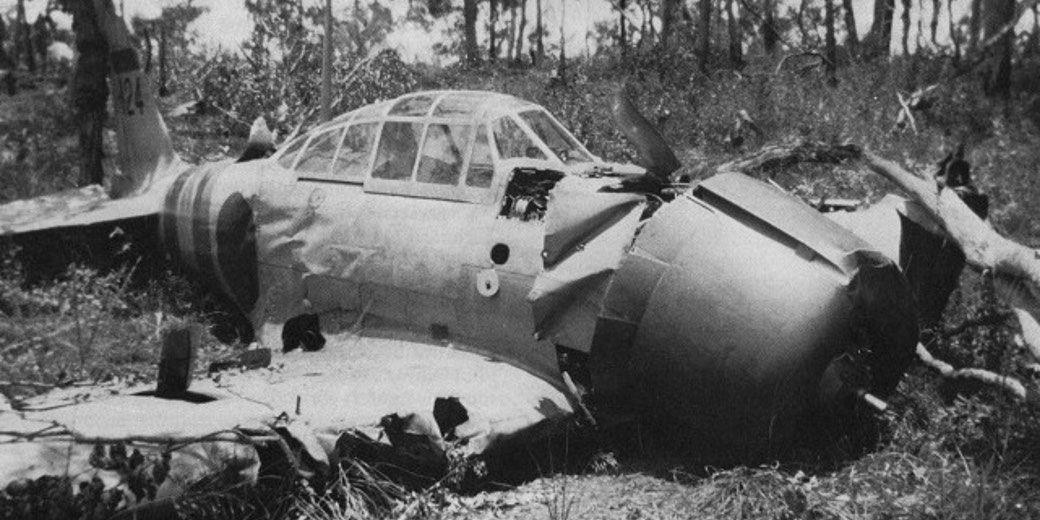The first WWII Japanese POW in Australia was captured by a First Nations man

Matthias Ulungura is a relatively unknown name today, but he became famous for a significant act of bravery during World War II.
He captured the first Japanese prisoner of war on Australian soil. The way it happened, though, is an incredible story.
How World War Two came to Australia
When Japan launched its campaign in the Pacific in December 1941, Australia faced serious danger.
The fall of British strongholds in Asia, including Singapore in February 1942, exposed Australia’s northern coastline to direct attack.
Political leaders had long assumed that the British Empire would protect its Pacific dominions, yet the rapid collapse of Allied positions forced Australian planners to review their defence plans.
Prime Minister John Curtin turned to the United States for support, and he warned that Australia now faced the full force of war on its doorstep.
Japanese military leaders aimed to dominate Southeast Asia and secure control over the vital commodities that powered their war effort.
In order to protect these conquests, they needed to neutralise Allied air and naval power in the region.
Northern Australia, especially Darwin, became a key target due to its strategic airfields and harbour close to Timor and Java.
On 19 February 1942, Japanese aircraft launched a planned attack on Darwin with over 240 planes.
They dropped bombs on military facilities, sank ships in the harbour, and killed more than 230 people in the worst-ever foreign assault on Australian territory.
The Tiwi Islands came under military scrutiny from across the sea as well. The islands, which lay 80 kilometres north of Darwin, held strategic value and soon hosted radar installations and airstrips.
The Tiwi people, who had occupied the land for thousands of years, maintained their way of life through daily tasks and ceremonies.
Yet the presence of warships and aircraft brought new dangers to their remote homeland.
On the morning of the Darwin raid, the impact of that danger became clear when a Japanese aircraft fell from the sky over Melville Island.
The remarkable capture of Hajime Toyoshima
During the bombing of Darwin, a Japanese Zero fighter took damage from anti-aircraft fire and crash-landed on Melville Island.
The pilot was named Hajime Toyoshima and he survived the wreck and tried to flee into the bush.
He carried a pistol and remained determined to avoid capture, as military rules told pilots to avoid surrender and choose death over capture.
Toyoshima intended to hide or die, but he soon encountered an unexpected obstacle in the form of a local man named Matthias Ulungura.
Ulungura belonged to the Wurankuwu group on Bathurst Island, and he had grown up hunting and tracking across the land.
His deep understanding of the land and its patterns allowed him to move swiftly and purposefully.
When he spotted the Japanese pilot, he did not hesitate. He carried a small axe, which he used to approach and disarm the wounded man without firing a shot.
He then led him through the bush to a Royal Australian Air Force radar post, where he calmly handed over his prisoner.
The moment was the first time that an Australian citizen had captured a Japanese soldier on home soil during the Second World War.
It also was the beginning of Hajime Toyoshima’s life as a prisoner of war. Australian authorities interrogated him, though he gave a false name, Tadao Minami, in an attempt to hide his identity.
Officials eventually discovered that Toyoshima had taken part in the bombing of Darwin and had flown with the elite 3rd Air Group of the Japanese Navy.
After his initial captivity in the Northern Territory, Toyoshima was transferred to the Cowra POW camp in New South Wales.
During his imprisonment, he became known for his musical skills and his good command of English.
In August 1944, he used a bugle to signal the start of the Cowra Breakout, one of the largest prison escapes in Australian history.
The escape failed, and more than 230 prisoners died in the attempt, including Toyoshima.
Why was this story forgotten?
Official records of wartime events often followed strict guidelines, and military censors kept secret any information that might help the enemy or worry the public.
Reports of Japanese aircraft losses or prisoner captures received little attention in the press.
The crash on Melville Island and the capture of Toyoshima remained classified and unpublicised for years, and no official praise reached Ulungura or his community at the time.
Public attitudes toward Aboriginal Australians also shaped how the story was treated.
Under the law, Aboriginal people held neither full citizenship nor voting rights, and many officials saw them as helpers rather than equals.
Despite the essential support that Aboriginal men and women provided for frontier defence and surveillance, they rarely received medals or formal acknowledgment.
In this climate, the achievement of a Tiwi man who brought in a Japanese airman held less interest for those who controlled the wartime story.
Later generations began to recover the story through local memory and oral tradition.
Tiwi elders continued to speak of Ulungura’s actions, and regional historians pushed for wider recognition.
A statue now honours him on Bathurst Island, and school programs in the Northern Territory include his story in their lessons on World War II.
Yet the federal government never awarded him a medal or formal citation, and many Australians remain unaware of his bravery.
What do you need help with?
Download ready-to-use digital learning resources
Copyright © History Skills 2014-2025.
Contact via email
With the exception of links to external sites, some historical sources and extracts from specific publications, all content on this website is copyrighted by History Skills. This content may not be copied, republished or redistributed without written permission from the website creator. Please use the Contact page to obtain relevant permission.





